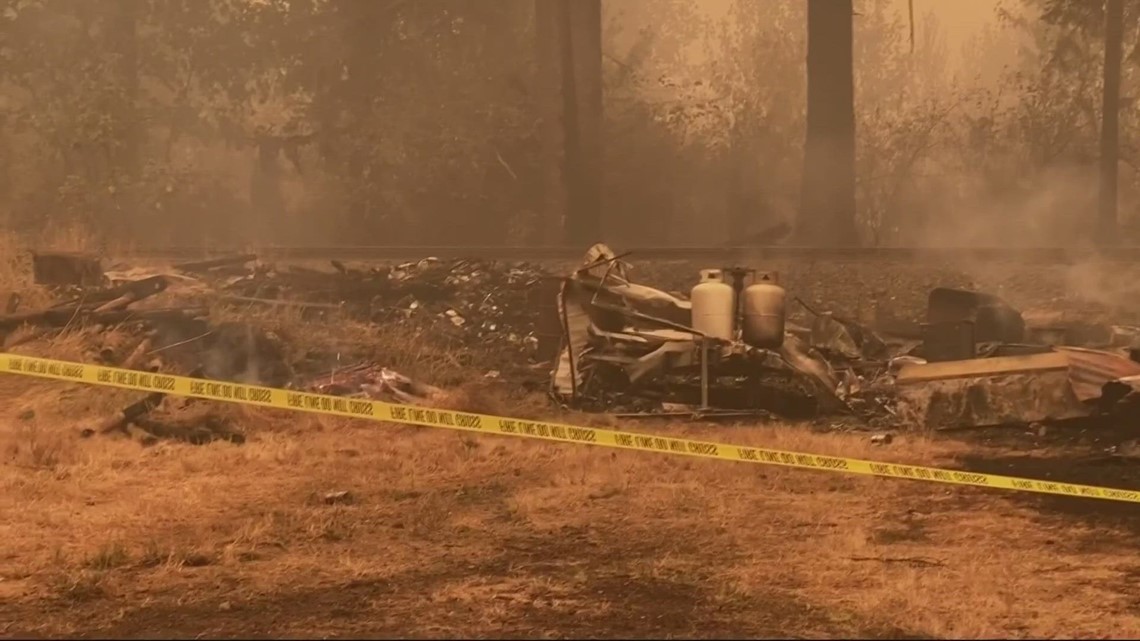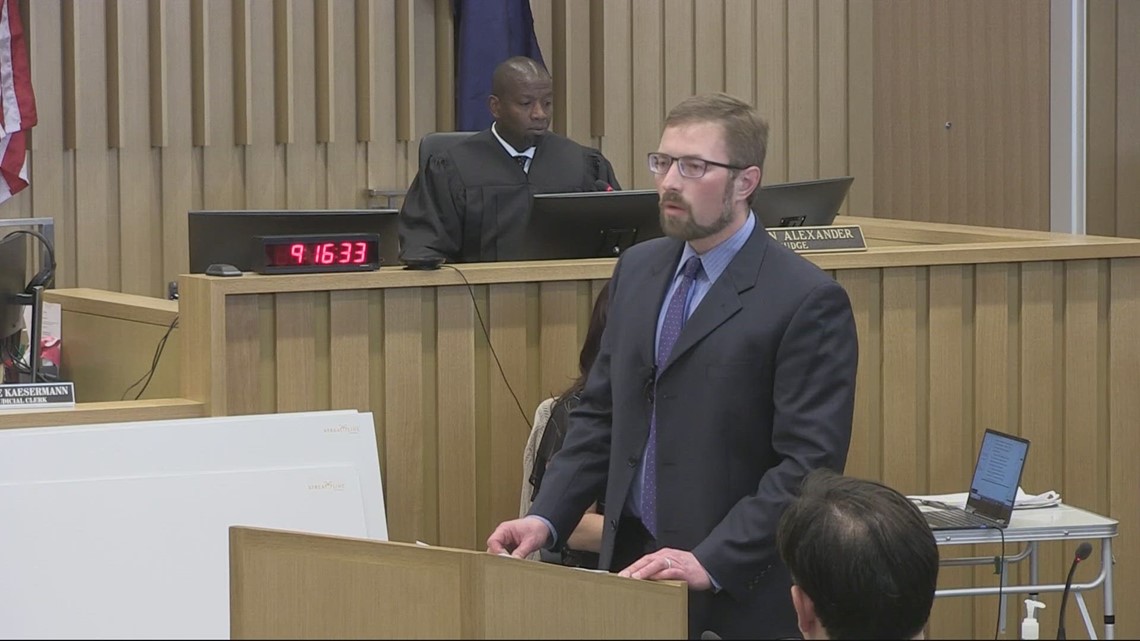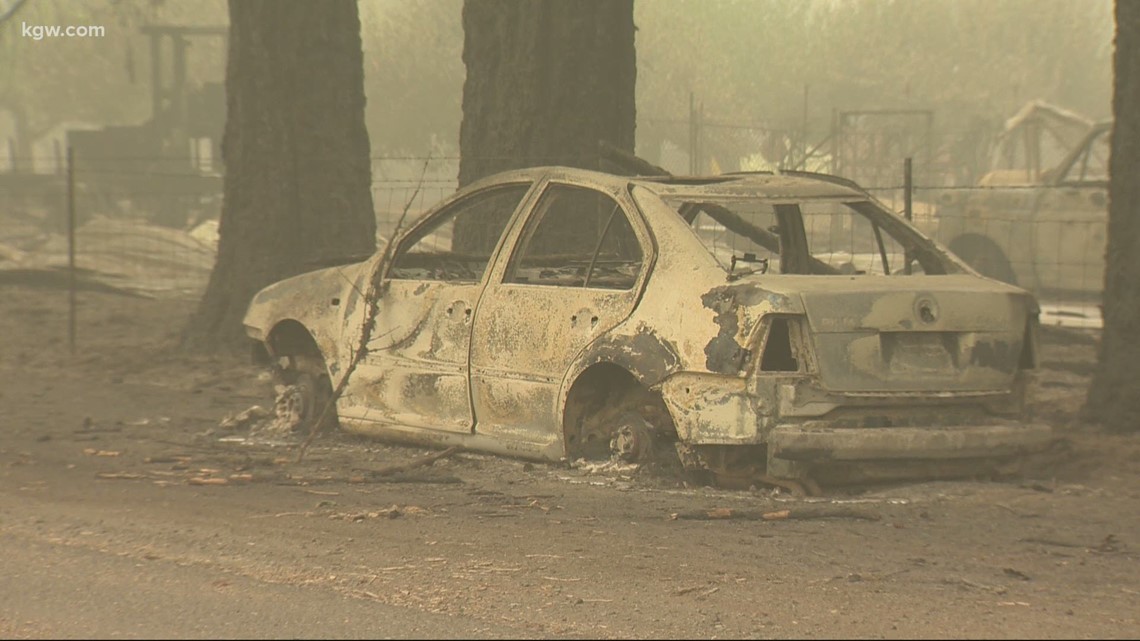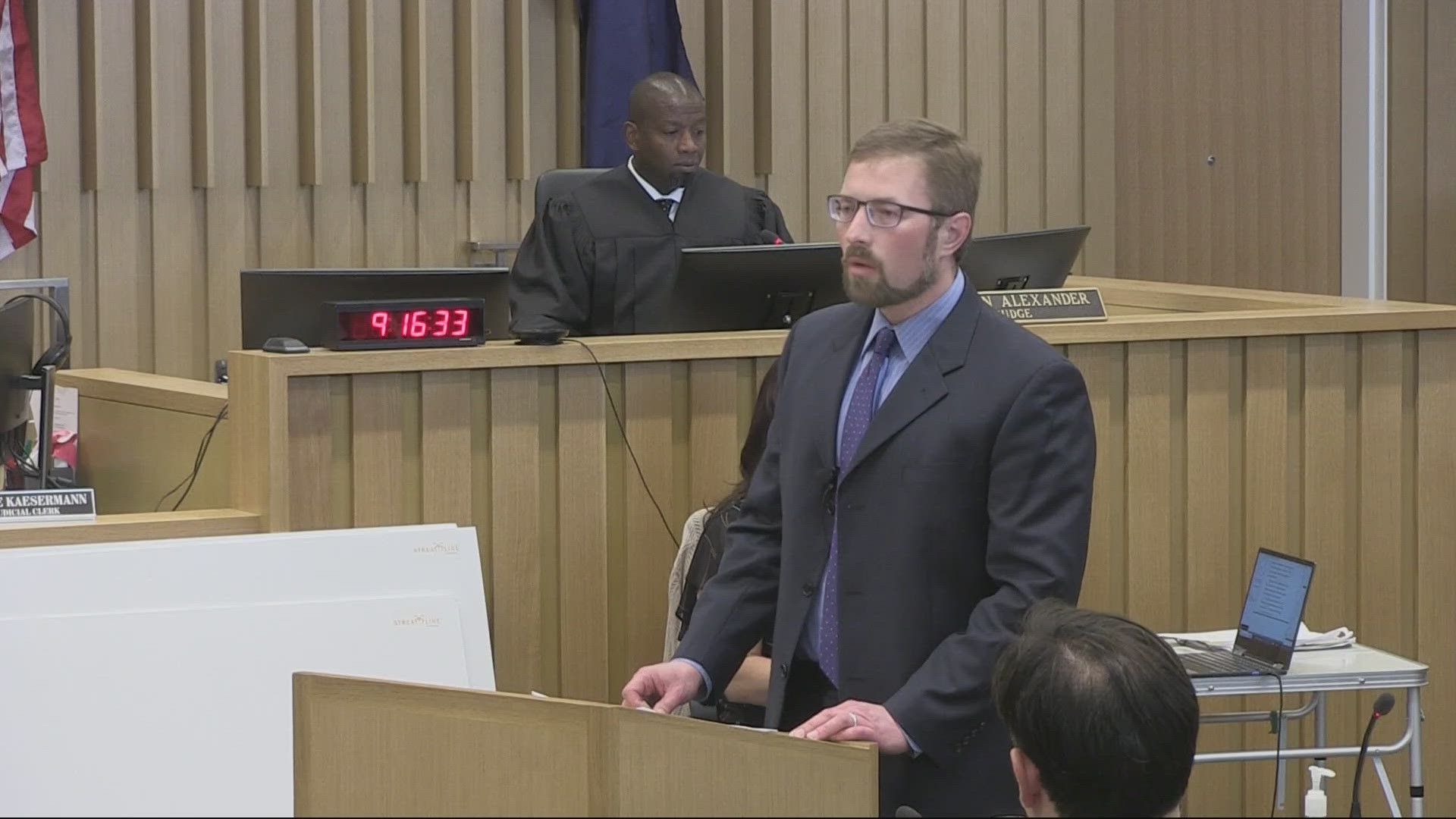PORTLAND, Ore. — Attorneys presented closing arguments Wednesday in a seven week trial over responsibility for the 2020 Labor Day wildfires.
A group of 17 plaintiffs is suing Pacific Power for $1.6 billion in damages, alleging the company caused destructive fires by not turning off the power in areas that were at extreme fire risk.
Pacific Power attorneys said the company shouldn’t be responsible for climate change, other wildfires spread to spark fires listed in the lawsuit, and power shutoffs were rare and a last resort.
A Multnomah County jury is set to decide if the company is responsible and if damages should be awarded.
"They started the fires, they destroyed the evidence, and now they've come before you and are asking not to be held accountable," said an attorney for the plaintiffs in court on Wednesday.
Lawyers for the group of plaintiffs, some of whom reported that their homes burned down in the fires, said Pacific Power had ample warning that windstorms could generate severe fire risk, including conversations with government officials about potential de-energization.


"It's about their choices not to act when all the warning signs were there, all the warning signs of extreme fire danger that led to this seven week trial," said the plaintiff's attorney.
Wildfire investigations are still ongoing, so the jury will have to determine who — or what — is at fault.
During closing arguments on Wednesday, plaintiff's attorneys said wildfire investigations are inconclusive because Pacific Power had destroyed evidence of downed power lines and erased internal communications about its findings.


A plaintiff's attorney said the only skype messages that Pacific Power didn't destroy were found in discovery in a labeled "purges" folder.
On the other side, attorneys for Pacific Power argued the company shouldn't be responsible for climate change, saying these fires were unprecedented, other wildfires helped them spread, and it's impossible to eliminate all risk.
"You have heard about the historic wind event that took place on Labor Day 2020, a natural event that knocked down healthy trees and spread fires at a rate not seen before in Oregon," said Doug Dixon, an attorney representing Pacific Power.
Dixon said plaintiff's attorneys don't have enough evidence that Pacific Power is at fault for the wildfires listed in the suit.
He spent much of his time in closing arguments looking at details on fire spread and wildfire mitigation, including the defense's assertion the nearby Beachie Creek fire is to blame for the Santiam Canyon Fire.


Pacific Power didn't shut off its power lines in the storms. Other power companies did turn off electricity in certain areas.
Pacific Power attorneys said public safety power shutoffs were rare in Oregon in 2020 and turning off power is dangerous to residents.
"How should we weigh the risks or the possibility of a fire, against the dangers that would be presented by a de-energization," Dixon said.
In its arguments, plaintiffs attorneys told jurors they could find Pacific Power liable under a 'substantial factor causation' part of the law.
Jurors would need to decide if the company is one of the substantial causes of the fires, even if conclusive evidence is unavailable.
"The idea is, you can't destroy the evidence and then stand up and say there's no evidence of your liability. That's not fair, that's not how the law works," said Nicholas Rosinia, an attorney for the 17 plaintiffs. "You are entitled to infer that the evidence that wasn't provided to you...would be adverse to PacifiCorp."
Attorneys concluded the closing arguments on Wednesday.
Since the 2020 wildfires, Oregon power companies have used power shutoffs more proactively in high wind events.
The jury is now left to deliberate and conclude whether or not the company is responsible and if damages should be awarded.

